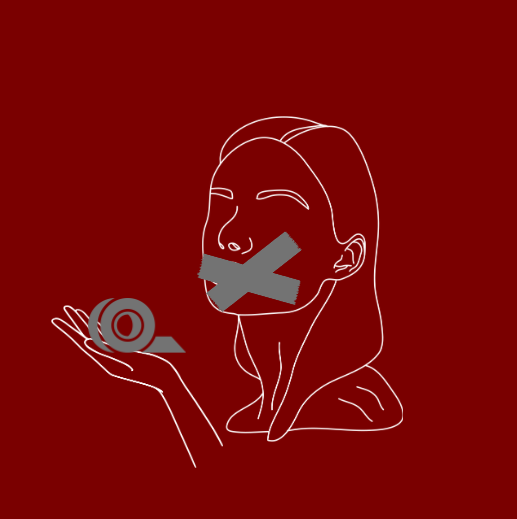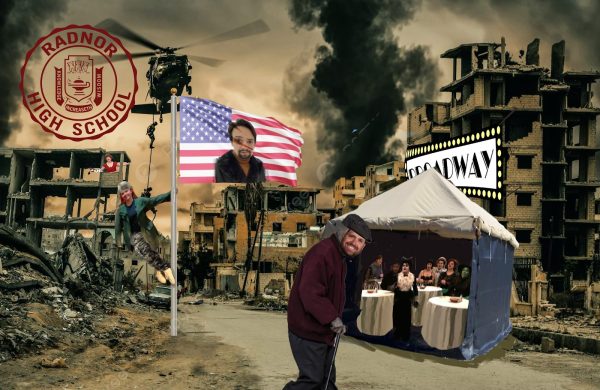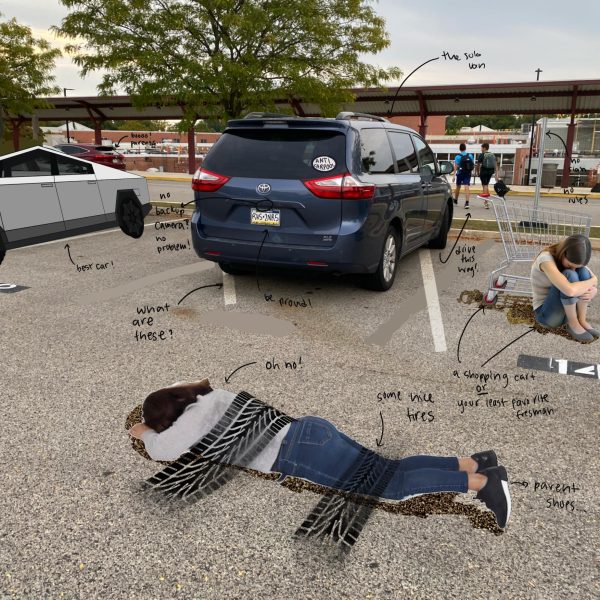I experienced censorship, now I fear for our democracy.

May 18, 2022
Experiencing censorship means waging a war between your own personal beliefs and the threats and intimidation of others. When you are censored, it places you in a challenging and emotionally taxing position, where at times you feel that you are isolated in your principles. Over the past few years, I have read about censorship in the news and wondered how a small group of people can have so much power to quiet the ideas, thoughts and voices they disagree with. Then, at sixteen-years-old, a small group of people tried to censor my words. Angry about an article I published in the Radnorite, certain parents relentlessly attacked me with unfounded grievances, and I reached a new understanding of the tactics used to censor divergent viewpoints and the difficulty of pushing back.
The first strategy of my attackers was to try to make me feel like the villain. They attempted to convince me and others that I had made a mistake or had done a bad thing with my work – an attempt to scare me into submission because their own arguments lacked truth and reason. In my article, I followed every single legal and ethical process necessary, but not everyone liked what I had to say. A small group of parents demanded that I change certain aspects of my article, and adults I trust told me that making these changes was worth it in the long run in order to protect me. But I didn’t know why I needed to be protected when I had done nothing wrong.
To me, the subtle changes I had to make represented a significant attempt to undermine the Radnorite’s journalistic integrity. People told me the small changes would not make a meaningful difference to the article, but to me, obeying the community members’ demands meant that our newspaper would not be holding people accountable for what they did and said. Obeying meant that we were failing in our mission to expose the truth and educate the community. If people believe they can say things without facing any consequences and rewrite the news when they do not like what’s being said, then we start down a slippery slope that leads to the loss of transparency, and without truth and transparency, we cannot have a functioning democracy. As the Washington Post says, “Democracy Dies in Darkness,” and censoring the full and complete truth in an article is the beginning of this darkness. Our country has touted free speech as one of our greatest accomplishments, but if people want to reap the benefits of free speech, they must also acknowledge and take responsibility for the weight of their own words. Freedom of speech does not permit people to say whatever they want without having to take ownership for those words. And when a person makes a statement that can have a lasting impact on the lives of others and that can fundamentally affect schools or other public entities, it’s the press’ duty to expose these incidents. The school setting may not be a democracy, but incidents such as the one I experienced work to silence and diminish the work of our student newspaper, an important means of expression for many students. Incidents such as the one I experienced begin to dismantle freedom of expression within the school, both from the force of people trying to censor the truth as well as from an internal fear and weariness that accompany being attacked for no comprehensible reason.
When Sarah Palin went after James Bennet and the New York Times (NYT), they went to court and the NYT won. It’s at the most local level, as in the case of a student newspaper or the school curriculum, where a small group of loud voices can eat away at justice. As I explained earlier, everything in my article followed the proper legal and journalistic processes. However, I was told that if I did not listen to the demands of a few angry community members, I would have to deal with “something ugly” and possibly endure years of fighting. At sixteen, I was forced to make the decision between possibly going to court to fight a group of middle-aged parents, or failing to honor the truth and stand up for my beliefs. I received relentless suggestions to make the changes to my article because this group of parents was getting upset, when in actuality I had no legal or ethical reasons to make any changes in the first place. I could not fathom how the issue became my hesitancy and delay in making the changes these parents were demanding and not that parents were trying to attack a teenager over an argument with no merit. Instead of focusing on silencing the voices trying to censor me, many adults turned their attention to convincing me to obey. The group of angry parents had accomplished exactly what they had hoped, intimidating the district and the Radnorite into making the choice to change the article.
I would have liked to have gone to court, but I don’t even have my license yet. I had math tests and school dances to think about, just like every other teenager, just like the children of the parents denouncing me and my article. In the end, I made the changes to my article, but I look back and wonder why this option was ever on the table. From my personal perspective, it seemed as though a few individuals were capable of bullying the school district into forcing a student to change an article that had no legal violations in the first place. I wrote this article to alert people: censorship exists here in Radnor, even in our very own high school. I may have lost this battle, but I believe in the long run our student body has the power to overcome these extreme voices and will unite to advocate for truth and justice.






